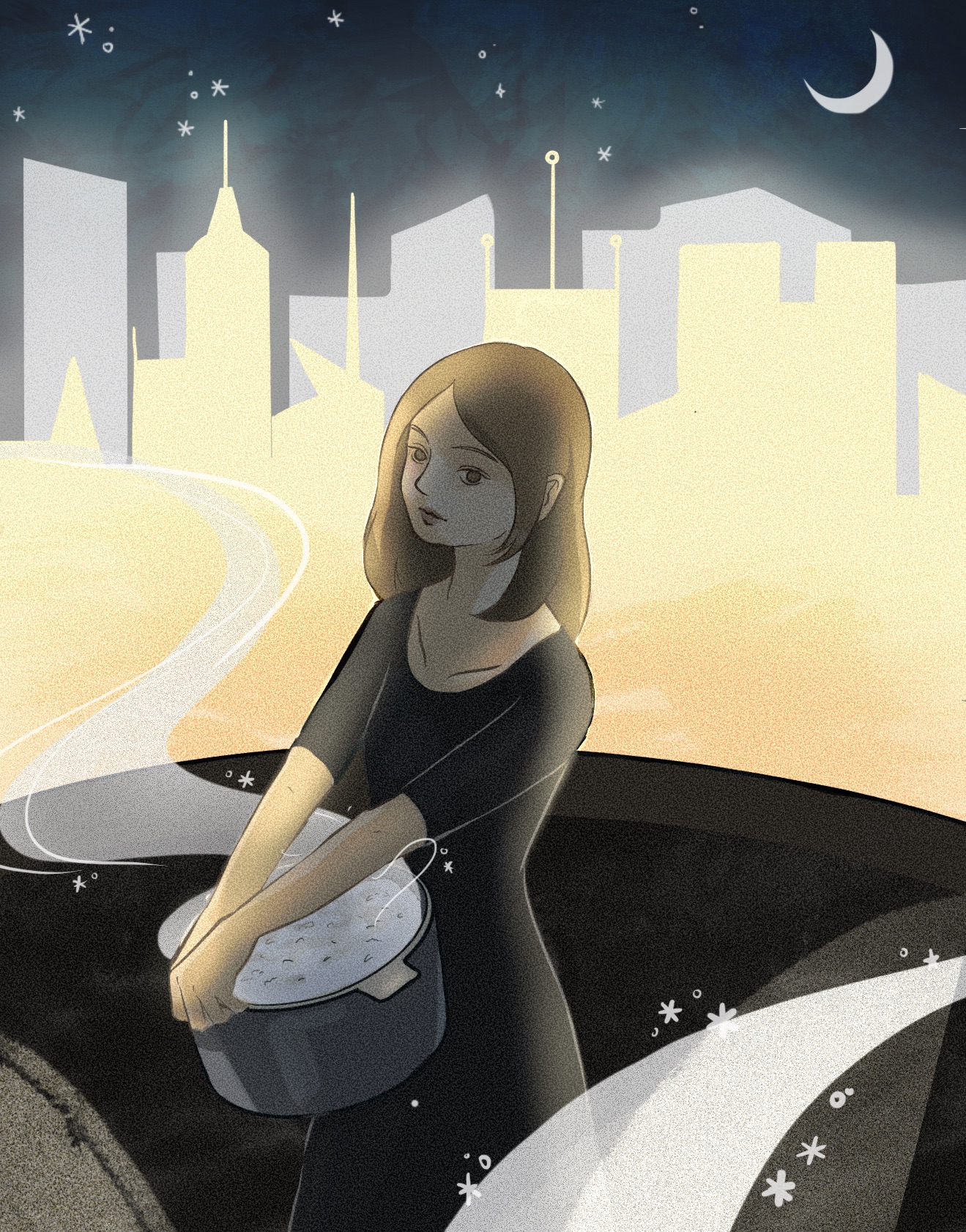
Catherine Kwon
Life is a rush of tiny yet all-consuming experiences. On a given day at school, I am thinking about the readings for my afternoon class that I haven’t yet done, about that awkward encounter I had with someone I barely know while I was reaching for the yogurt at breakfast, about how I’m going to cram my YDN edits into an already-busy afternoon. Sometimes, the world doesn’t seem to exist outside of my routine at Yale.
Zooming out from the minutiae of daily life is powerful. Acknowledging moments of awe or greatness in the world is what we call “the sublime.” When we interact with the world as its own being, as something out of our control, we can find reflection, perspective and appreciation in the sublime.
Two weeks ago, I flew from Richmond to Boston, returning home after visiting my grandparents. I sat in the window seat, forehead pressed against the cold pane. For hours, thoughts had swirled endlessly around my head — how weird it was to be seeing family after my first semester at school, how my cousins and I felt farther apart now that I was living away from home. I was unmoored. A part of me belonged back at school, instead of shuttling from my grandparents’ house to the strip mall nearby. And yet it was comforting to be home, surrounded by people I’d known all my life, instead of masses of unfamiliar Yale students.
The plane drew closer to Boston, and out the window, I faced the ocean. All I saw was black. The water, devoid of any boats, islands or lights, stretched out for an infinite distance, until it merged with the sky, a similar deep darkness unmarked by stars or the moon. The horizon didn’t exist, and the sky and water were indistinguishable. I couldn’t look away. I imagined the darkness extending forever, incomprehensibly infinite. I had no control over this tangled expanse of sea and sky — the world was much bigger than my existential thoughts about family, friends and school. Maybe it was time to loosen my grip on my own existential pontifications.
In addition to providing reflection and perspective, the sublime makes me more appreciative of the experiences I have. This past summer, I visited Prague. Our last day in the city, we were eager to make the most of our time. We went to the Jerusalem Synagogue, a 20th century synagogue with chandeliers, stained glass and Hebrew phrases along the colorfully painted walls. As we were about to leave, it began to downpour. We decided to wait it out.
At first, I was frustrated. There was so much else to see in the city, and we didn’t have much time. I sat in one of the pews and took a deep breath. It was dark out. The synagogue had a warm, protective light to it, illuminating the sanctuary in the face of the storm outside. Rain beat against the roof, a deep, hollow sound, and outside, the streets and sidewalks had flash-flooded. There was a holiness in the moment, I realized, being so close to uncontrollable nature, and yet wrapped in the security of the synagogue. Maybe it was for the better that the day hadn’t gone as planned.
I find the sublime at Yale, too. Last semester, after finishing a final paper two minutes before it was due and rushing out of Sterling at midnight, I looked up at the sky. It was one of the clearest starry nights I’ve seen at school. I stood on Cross Campus for a moment. Far up above were Orion, the Pleiades. I zoomed out and let go.







